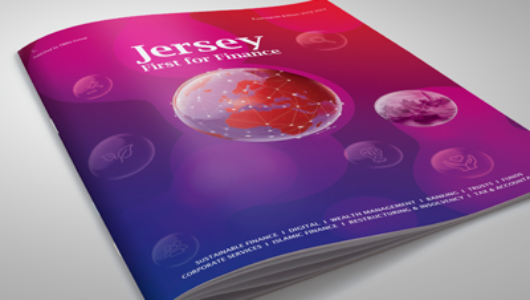The industry is built on a highly developed communications network, low personal and business taxes and a broad range of expertise. A particular strength lies in the ability to deliver innovative and flexible world class financial services for high net worth individuals (HNWIs) and families, thanks to a combination of bespoke wealth management solutions and a modern, comprehensive and rigorously enforced legal and regulatory structure.
Over the last six decades a series of progressive steps to evolve and grow the sector have been taken by the Island’s finance industry and government. The removal of restrictions on interest and the passing of the Income Tax law in 1961 set the process in motion, giving rise to the offshore banking industry and by the end of the decade total bank deposits had jumped to £300 million, equating to 10 times the UK equivalent per capita.
With the value of financial services to Jersey’s economy and community becoming increasingly obvious, the next two decades saw further legislative changes taken to promote the sector. The passing of the Jersey Trust Law in 1984 meant the Island became the first jurisdiction in the world to bring trust and company service providers under a regulatory regime. From 1991 to 2001 the value of investment trusts in Jersey grew exponentially, from £7 billion to £95 billion.
The 2000s brought truly international recognition with Jersey’s inclusion on the Organisation for Economic Cooperation and Development’s (OECD) white list, placing it alongside jurisdictions that have implemented the internationally agreed tax standard, such as the United Kingdom, United States and many European Union member states.
More recently, the Island’s response to the COVID-19 pandemic demonstrated its ability to rise to large and unexpected challenges. A swift and effective reaction meant that, despite four rigorous lockdowns, Jersey’s finance industry maintained a ‘business as usual’ focus.
This included the funds sector and thanks to the Island’s adaptability and resilience, Jersey’s fund authorisations unit and registry remained open, supporting businesses throughout the pandemic. The fact that 100 new Jersey private funds launched in 2020 serves as a ringing endorsement of the sector’s ability to cope and manage significant, unprecedented, market and logistical challenges.
Today, financial services represent roughly 40% of Jersey’s Gross Value Added (GVA) and is clearly the largest sector for employment.
TAILORED APPROACH
One of the standout features of Jersey’s finance industry differentiating it from other leading financial centres, is its focus on delivering bespoke services, specifically tailored to meet individual needs.
It has constantly strived to provide innovative and appropriate investment solutions for a wide range of clients including HNWIs, trustees, family offices, charities and corporates. With its core values of accountability and transparency, Jersey continues to advance tailored solution aimed at building and preserving clients’ wealth.
The remarkable growth of the finance industry has meant radical adaptation is necessary to remain at the forefront of the profession. Changes in the global financial and macroeconomic environment have been profound, as clients have become increasingly discerning in their desires and needs.
Jersey’s finance industry has evolved considerably, not only meeting these challenges but also to drive change itself, constantly looking to improve its quality of solutions and services.
FRAMEWORK FOOTING
A cornerstone of Jersey’s well-earned and justified reputation for excellence, is its robust legal and regulatory system. Compared to many other offshore locations, this framework, along with a stable democracy as a largely self-governing dependency of the British Crown, are key attractions. The Government of Jersey’s policy framework confirms its commitment to the financial sector, reiterating its role in providing a responsive and enabling business environment.
Tax neutrality, the concept that the structure of a fund does not lead to a duplicative layer of taxes borne by investors, has been a core tenet of the Jersey tax system and undisputedly contributed to the growth of the industry.
The maximum personal tax rate is 20% and the tax on goods and services is 5%, with only a few exemptions.
The present corporation tax regime, known as ‘zero/10’ means that most companies are subject to 0% corporation tax, while a small number of companies are subject to a rate of 10%.
There has been a growing scrutiny on 0% tax regimes in recent years and the EU parliament passed a resolution in 2021 requiring the EU Commission/Council to blacklist jurisdictions with a 0% corporate tax rate.
However, this should not be of too great a concern. Many onshore jurisdictions provide exemption to domestic taxes for investment funds and therefore even though funds in Jersey are currently subject to 0% tax, the system also contains a fund exemption. Furthermore, the UK formally left the EU more than two years ago and while Jersey continues to be fully committed in its adherence to the EU’s 5th Anti-Money Laundering Directive, it is no longer as closely tied to the bloc.
Jersey has a well-earned reputation for delivering world class expertise in a range of bespoke structures and services, which it has developed for over 60 years. It continues to be the jurisdiction of choice for many HNWIs seeking to preserve and grow their wealth, offering them a range of bespoke investment services.
Yet the allure of the Island does not just lie in its heritage and tradition. As was ably demonstrated by its response to the COVID-19 pandemic, Jersey’s financial services sector continues to strive to rise to upcoming challenges.
SUSTAINABLE FINANCE
One area of rapidly growing awareness and interest in recent years is sustainability.
International capital flows have put Jersey in a position to contribute significantly to global sustainability efforts and it is part of the Network of Financial Centres for Sustainability (FC4S), a group seeking to achieve the United Nations’ Sustainable Developments Goals (SDGs) and the Paris Agreement on climate change. The adoption of international standards, adaptation to technological advances and utilisation of expertise are helping Jersey play its part in driving positive change around the world, seeking to move towards a more environmentally and socially sustainable global economy.
Disclaimer:
Quilter Cheviot and Quilter Cheviot Investment Management are trading names of Quilter Cheviot Limited. Quilter Cheviot Limited is registered in England with number 01923571, registered office at Senator House, 85 Queen Victoria Street, London, EC4V 4AB. Quilter Cheviot Limited is a member of the London Stock Exchange and authorised and regulated by the UK Financial Conduct Authority. Quilter Cheviot Limited is regulated by the Jersey Financial Services Commission in Jersey and by the Guernsey Financial Services Commission in the Bailiwick of Guernsey. Accordingly, in some respects the regulatory system that applies will be different from that of the United Kingdom.

